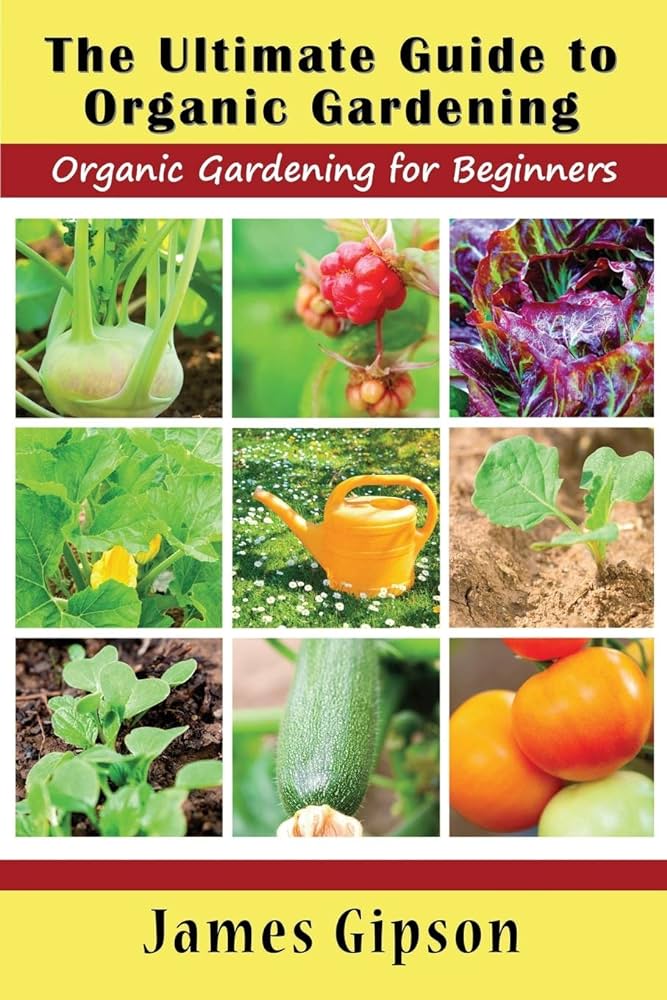In today’s fast-paced and technology-driven world, finding ways to connect with nature can be a challenge. As I found myself yearning for a deeper connection with the earth, I discovered the wonderful world of organic gardening. Not only did it fulfill my desire to be more in touch with nature, but it also provided me with an abundance of fresh and healthy produce right at my fingertips. If you’re like me and want to embark on a journey towards sustainable living and self-sufficiency, then this ultimate guide to organic gardening is for you.
Why Organic Gardening?
Before delving into the nitty-gritty details, let’s start by understanding why organic gardening is so important. By using natural methods and avoiding synthetic chemicals, organic gardening ensures the wellbeing of both plants and the environment. It fosters biodiversity, promotes healthy soil, and reduces pollution, making it a sustainable and eco-friendly practice. Moreover, organic produce is also healthier for you and your family, as it is free from harmful pesticides and chemicals found in conventionally grown food.
Planning Your Organic Garden:
The first step in creating an organic garden is proper planning. Begin by considering the space you have available, whether it’s a small balcony or a spacious backyard. Assess how much sunlight your garden receives and make a note of any potential obstacles, such as tall trees that may cast shadows. Additionally, take into account the soil conditions and think about what type of plants would thrive in your specific area.
Choosing the Right Plants:
Selecting the appropriate plants for your garden is crucial in organic gardening. Opt for varieties that are well-suited to your climate and have a natural resistance to pests and diseases. Prioritize heirloom and open-pollinated seeds over hybrid varieties, as they tend to be hardier and more adaptable. Consider companion planting techniques where certain plants benefit one another, such as marigolds that deter pests or herbs that attract beneficial insects.
Preparing the Soil:
Preparing the soil is vital to create a healthy and fertile environment for your plants. Begin by removing any weeds or grass from the area and turning the soil with a fork or a tiller. If your soil lacks organic matter, consider adding compost or well-rotted manure to boost its fertility. Organic matter improves soil structure, aids water retention, and provides essential nutrients to plants.
Implementing Organic Pest Control:
One of the significant challenges in gardening is dealing with pests and diseases. Luckily, organic gardening offers a plethora of solutions that are both effective and safe for the environment. Encourage natural predators like ladybugs, lacewings, and birds by providing them with food sources and shelter. Use companion planting techniques by intercropping plants to repel certain pests or attract helpful insects. Organic pest control sprays derived from essential oils or soap can also be used when necessary.
Watering the Right Way:
Watering is often an area where gardeners tend to overdo it. In organic gardening, it’s important to water effectively and conserve this precious resource. Mulch your beds with organic materials such as straw or wood chips to retain moisture and prevent weed growth. Water deeply but infrequently, allowing the soil to dry out slightly between watering sessions. Investing in a rainwater harvesting system is a sustainable way to collect and utilize rainwater for your garden.
Nurturing Your Garden:
Successful organic gardening requires dedication, observation, and nurturing. Regularly inspect your plants for signs of pests, diseases, or nutrient deficiencies. Keep weeds at bay by mulching and pulling them out whenever necessary. Provide support for climbing plants like tomatoes or beans, and try to keep a balance between growth and fruit production by pruning and thinning when needed. Embrace the natural cycles of the seasons and allow your garden to evolve and adapt over time.
The Rewards of Organic Gardening:
Embarking on an organic gardening journey provides countless rewards beyond the joy of nurturing your plants. Witnessing the growth and development of your garden can be immensely satisfying, from sowing tiny seeds to harvesting bountiful crops. The sense of accomplishment from growing your own organic food is unmatched, bringing you closer to the food you eat and fostering a deeper appreciation for nature’s miracles. Plus, sharing the fruits of your labor with friends and loved ones is a wonderful way to spread the joy and promote sustainable living.
In conclusion, organic gardening is not just a hobby; it’s a way of life. By practicing organic gardening, we connect with nature, support biodiversity, and promote a healthier planet. It allows us to produce fresh and nutritious food, all while reducing our carbon footprint and embracing a sustainable and eco-friendly lifestyle. So, grab a trowel, dig in the dirt, and let nature guide you on this incredible journey towards organic gardening. You won’t regret it!

